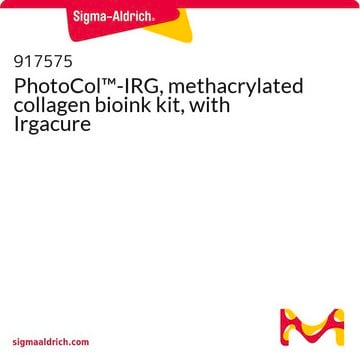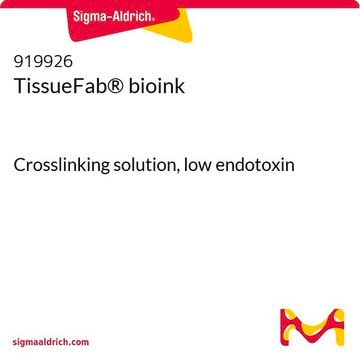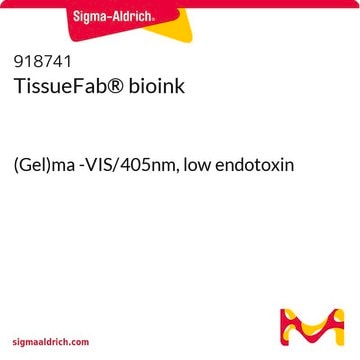おすすめの製品
アプリケーション
This bioink is derived from natural polymers − alginate and gelatin. Alginate also known as sodium alginate or alginic acid, is a natural biopolymer obtained from brown algae. Alginate is a natural polysaccharide widely used in tissue engineering. Gelatin contains bioactive peptide sequences similar to native extracellular matrix which promotes integrin mediated cell adhesion and MMP sensitive enzymatic degradation which are essential for cellular functions such as migration, proliferation and differentiation.
特徴および利点
- Ready-to-use formulation optimized for high printing fidelity and cell viability, eliminating the lengthy bioink formulation development process
- Step-by-step protocols developed and tested by MilliporeSigma 3D Bioprinting Scientists, no prior 3D bioprinting experience needed
- Suitable for different extrusion-based 3D bioprinter model
包装
法的情報
保管分類コード
12 - Non Combustible Liquids
WGK
WGK 3
適用法令
試験研究用途を考慮した関連法令を主に挙げております。化学物質以外については、一部の情報のみ提供しています。 製品を安全かつ合法的に使用することは、使用者の義務です。最新情報により修正される場合があります。WEBの反映には時間を要することがあるため、適宜SDSをご参照ください。
Jan Code
920983-BULK:
920983-VAR:
920983-1EA:
最新バージョンのいずれかを選択してください:
資料
組織工学向け3Dバイオプリンティングのための3Dバイオインク選択ガイドです
Bioinks enable 3D bioprinting of tissue constructs for drug screening and transplantation; select suitable bioinks for specific tissue engineering.
Learn how 3D bioprinting is revolutionizing drug discovery with highly-controllable cell co-culture, printable biomaterials, and its potential to simulate tissues and organs. This review paper also compares 3D bioprinting to other advanced biomimetic techniques such as organoids and organ chips.
ライフサイエンス、有機合成、材料科学、クロマトグラフィー、分析など、あらゆる分野の研究に経験のあるメンバーがおります。.
製品に関するお問い合わせはこちら(テクニカルサービス)






